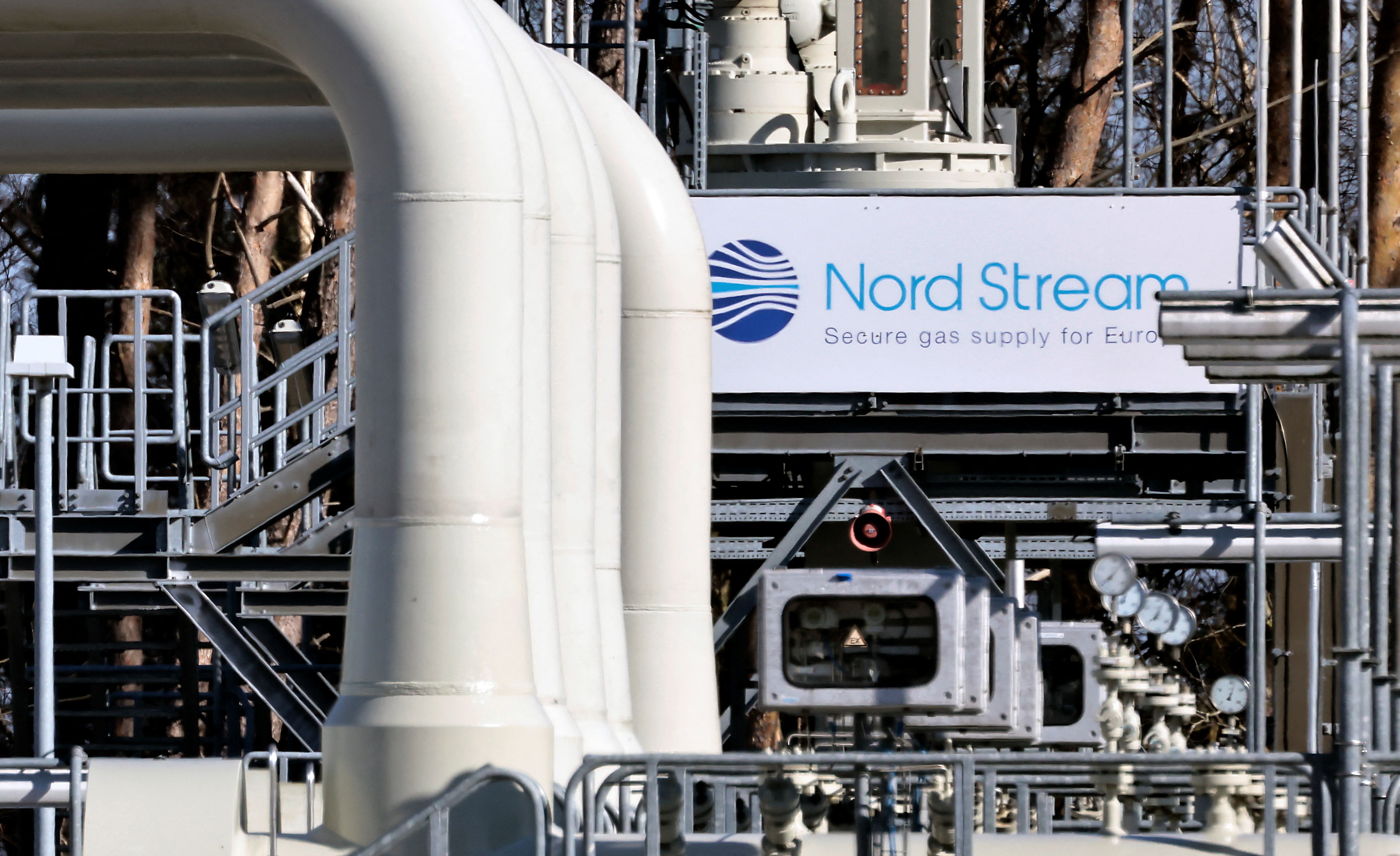Russia halts Nord Stream for maintenance, creates European anxieties
What if Russia extends its maintenance period? Europe expresses its worries.
-

The Nord Stream 1 gas pipeline in Lubmin, Germany. (Reuters)
According to the pipeline's operator, Nord Stream AG, deliveries of Russian gas through the Nord Stream pipeline to Europe stopped on Monday at 4:00 am GMT for maintenance.
In addition to stopping for maintenance, the two strings of the pipeline are being tested for mechanical components and automation systems from July 11 to 21.
European governments, markets and companies, with the 10-day shutdown of gas flows, fear the pipeline closing down as the war in Ukraine goes on, or fear that Russia would extend the scheduled maintenance to reduce European gas supplies.
Russia, through Nord Stream 1, transports 55 billion cubic meters of gas per year to Germany through the Baltic Sea. Last month, this flow was reduced by 40%, as Russia blamed the reduction on delays in returning equipment being repaired by Siemens Energy, a German company, in Canada.
If the scheduled maintenance were to have an extension, plans to store quantities of Russian gas for the winter will be disrupted, worsening the current gas crisis in Europe. This has led to drastic measures and painful price hikes.
Read more: Gas rationing might become a reality in Germany
German Economy Minister Robert Habeck previously said that "the country must confront the possibility that Russia will suspend gas flows through Nord Stream 1 beyond the scheduled maintenance period."
Dmitry Peksov, the Kremlin spokesman, denied accusations that Russia was using energy resources as a weapon for political pressure, arguing that "maintenance shutdowns are a regular and a scheduled event."
On Saturday, Canada decided to return the turbines needed to maintain the Nord Stream 1 gas pipeline to Germany, with Russia waiting on the machine's arrival before increasing supplies.
Ukraine had urged Canada not to return the turbines as it seeks to keep up international pressure on Russia while Germany is seeking to bolster energy supplies.
Kiev has accused Berlin of giving in to Russian "blackmail" after Moscow blamed reduced supplies on the need for repairs.
The turbines are currently undergoing maintenance at a Canadian site owned by German industrial giant, Siemens.

 2 Min Read
2 Min Read








